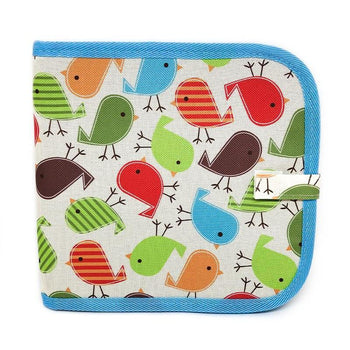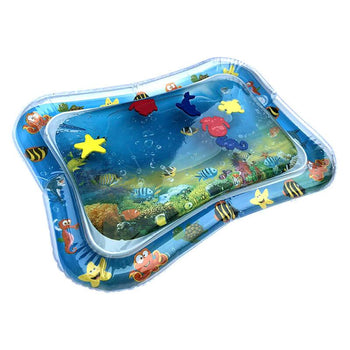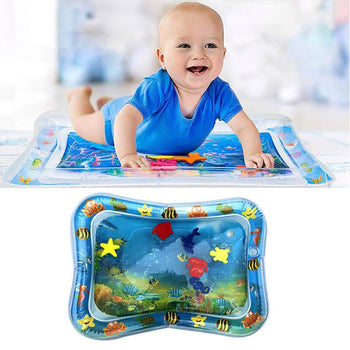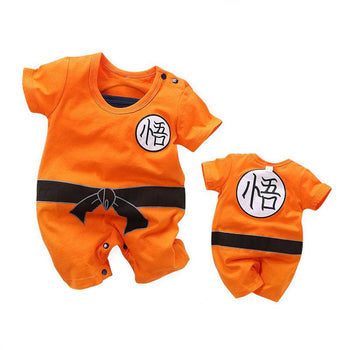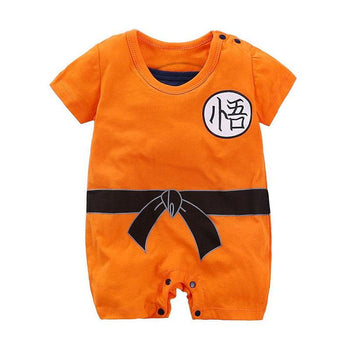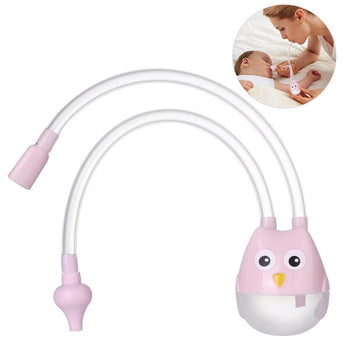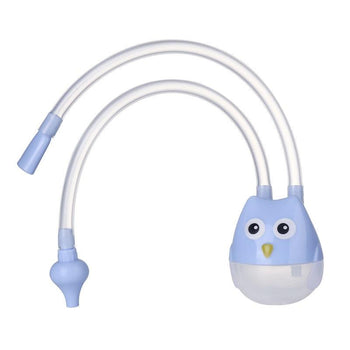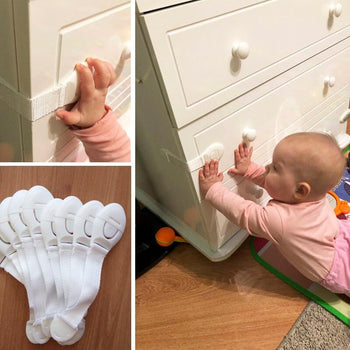If your infant has colic , he will cry for hours and be hard to calm him down. What are the signs and symptoms of colic? What would you do to help a colicky baby fall asleep? This article will tell you everything you need to know.
What exactly is colic?
Colic is a condition in which the baby cries for long periods at a certain time of the day. Some babies cry for an hour or two, while others may cry for several hours. Every day, my friend's baby cried for 5-6 hours!
The most difficult aspect of colic is that it is difficult to calm the baby and avoid crying. When an infant with colic cries, he does so without warning and for no particular reason. For example, you can't just change a diaper.
The term "colic" refers to a healthy baby crying for long periods of time, daily, for weeks. Some children have a lot (and are diagnosed as having colic), while others have much less (and are not labeled as having colic).
According to Dr. Ronald Barr, a developmental pediatrician and world expert on baby crying, all babies go through this stage which he calls "the Period of Purple Crying" and is believed to be normal in their development. However, some are easier to manage than others.
So rest assured, you have nothing to do with it.
What is "The Period of Purple Crying"
If this method of describing baby seizures is called that, it's not because he turns purple when he cries, explains the pediatrician. The word "purple" ("violet" in French) is actually an acronym.
The P for "crying peak" : your baby cries more and more every week until reaching its peak at about 2 months, then less and less from the 3rd to the 5th month.
The U for "unexpected" means "unexpected", because babies cry without knowing why.
The R is for "resistance to appeasement" : no matter what you do to calm him down, he keeps crying.
The second P corresponds to the "pain-like face" , or the "head of pain", even if your child has absolutely no pain. If he has a health problem, other signs will be present, such as fever for example.
The L is for "crying length" . You remember my friend's baby who cried until 6 o'clock.
Finally, the E corresponds to the word "evening" , because in general this is the moment when your child starts to cry.
Symptoms and signs of colic in babies
Here are the most common signs and symptoms of colic:
- The baby cries for a long time (2-3 hours or more).
- Every day the crying is predictable. For example, each evening your baby cries for three hours, from 7 p.m. to 10 p.m.
- Crying most often occurs in the evening.
- Baby seems to be in pain when crying
- There is no way to appease him.
What are the causes of colic?
Nothing causes colic. All babies go through a period when the crying gradually increases until it reaches a peak. This is a development period and a phase that ends after a few months. Every day the crying starts unexpectedly and ends as suddenly as it started.
This time can be extremely stressful, and you may begin to question your abilities as a parent. However, it's not a sign of your parenting skills, and crying has no long-term consequences.
Some theories suggest that a baby may be overstimulated as they adjust to the outside world , but there is no definitive reason why some babies cry longer than others.
When does colic usually start?
Your baby's colic begins around two weeks of age . Crying may intensify over the next few days/weeks before reaching a peak. The age at which a baby starts crying differs from baby to baby. For some babies, the peak is reached at 3 weeks, while others can still cry for hours every day until they are 2 or 3 months old.
When does colic stop? How long does colic last?
Fortunately, although it may seem like an eternity, the colic eventually stops.
When your baby's colic reaches its peak, the crying gradually subsides over days and weeks, and by 3 or 4 months it stops . Therefore, colic can last between 1 and 12 weeks , and it is difficult to predict how long your baby will suffer from it.
However, we know that there is usually a 6 week restlessness period. Many babies fuss and whine less over the next few weeks. This is exactly what happened to my boy, and by the time he was 8-10 weeks old he was much less irritable!
How do you know if your baby is not sick?
When your baby has colic, he cries predictably every day at around the same time. Your doctor will rule out any health issues and diagnose your baby with colic if this crying cycle lasts for weeks or months.
If your baby is sick, he will most likely have diarrhea, vomiting, fever, weight loss and lack of appetite, etc.
Since you won't know if your baby is crying cyclically due to colic for a few weeks, it's important that your doctor performs tests and examines your baby to rule out any medical issues. First and foremost, your doctor should rule out all other possible explanations for the crying.
How to Calm a Colic Baby: What Are the Best Colic Remedies?
Unfortunately, the concept of colic involves your baby crying for long periods of time without being able to be soothed. I will tell you things as they are. Therefore, methods aimed at soothing a colicky baby are unlikely to be successful. In contrast, few parents will sit idly by while their baby cries.
As usual, I encourage you to strategize how you will regularly care for your newborn when the crying begins.
If you have any help, I strongly advise you to take turns as well. For example, if you know your baby is going to cry for three hours every day starting at 6:30 p.m., you can ask your spouse to take a walk or bath in another room for the first 30 to 60 minutes during as you take the first turn. Then you switch places for the second hour.
If you don't have anyone to support you, try calming the baby for 30 minutes, rocking him for 30 minutes, walking him around the kitchen wearing headphones for 30 minutes, etc. You'll relieve some of the stress of hoping you can stop crying if you know what you're going to do each day. Accept that the baby will cry and stick to your "protocol" for getting through it.
But what about the baby? What would you do to calm him down? Here are some ideas to get you started:
- Use a swing
- Turn off the television and all other noise sources in the room.
- Dim the lights.
Take a break if you need it!
It is obvious that some parents are irritated by their baby crying daily for long periods of time. This is quite understandable ! It's always safer to take a break than risk hurting your children. If you need to rest, put your baby in a quiet place in another room for 10 to 15 minutes. It will not affect the baby, and you will have time to pull yourself together. After all, your senses can be overstimulated too!
5 ways to improve your baby's sleep during colic
If there is a chance that overstimulation will increase colic, it will help you and your baby to help him sleep better. No, we won't be able to eliminate all the crying or "cure" the colic, but getting your baby to sleep better can help you recharge during the day. If you're lucky, you'll be able to sleep during the day, which will give you more patience later on.
Here are five ideas to help your infant sleep better:
Swaddle your baby
The benefits of swaddling are obvious, and it can help a fussy baby relax. Be sure to swaddle your baby properly for best results.
For more details on swaddling, its advantages and mistakes not to make, click here .
Use white noise
Using white noise to block out household sounds will help your baby sleep better. This can help relax your baby if he is easily overstimulated.
For more details on white noise:
How (and why) should you use white noise for babies?
How can white noise help you and your baby sleep?
carry your baby
Using a sling to simulate your newborn in its mother's womb can be extremely beneficial. In a sling , several babies will fall asleep.
Keep your baby awake for a reasonable amount of time
The best way to overstimulate a baby is to keep him awake for an extended period of time. Babies absorb a lot of information from their environment. Therefore, when they are older, many babies can only stay awake for 45-60 minutes at a time.
Have direct skin-to-skin contact
The benefits of skin-to-skin contact are many, but most important to calming a colicky baby is that it allows their heart and breathing to be controlled with yours. Kangaroo care has been shown to have many benefits, both for your baby and for you. And the best part is that anyone who takes care of a baby can do it!
I hope this article has given you a better understanding of colic and, above all, made you feel less alone. And I hope you understand that it has nothing to do with your parenting abilities. It just takes patience.
Do you want your baby to sleep through the night?
In this free guide , you'll discover 5 things you absolutely need to know.
With a unique approach and practical tools for success, this guide will help you and your baby sleep better through the night.































